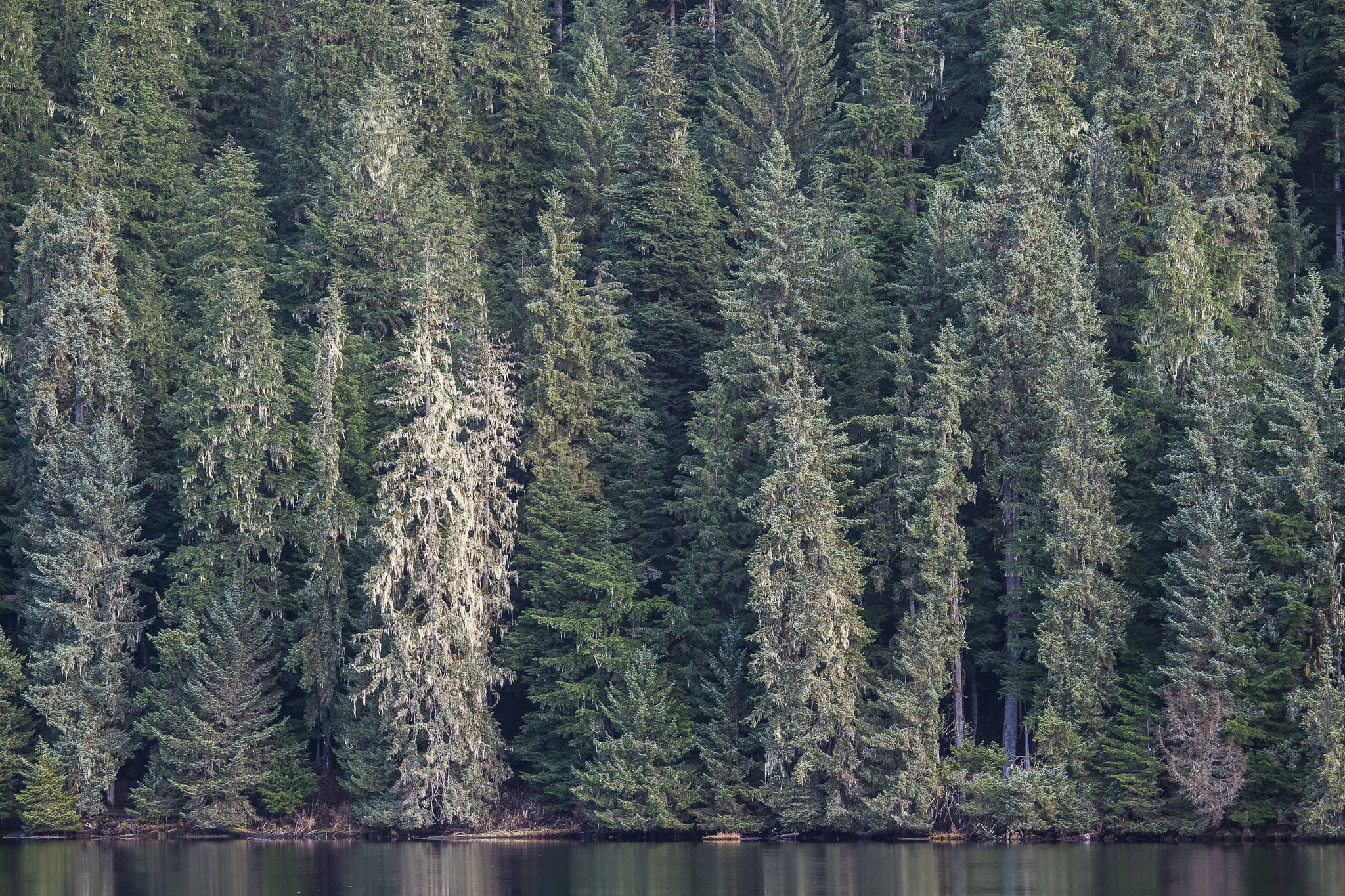Environmental organizations in the state and around the country are opposing a major timber sale on Prince of Wales Island.
Earthjustice, a nonprofit environmental law organization, filed a formal objection to the Prince of Wales Landscape Level Analysis Project (POW LLA) on Dec. 21. It filed the opposition on behalf of nine conservation organizations, including Defenders of Wildlife, a national organization. Defenders of Wildlife filed an additional objection Thursday.
The POW LLA project is being done through the U.S. Forest Service, which writes on its website that the project is to improve ecosystem health in the Craig and Thorne Bay Ranger Districts while “meeting multiple resource objectives in order to provide economic development.”
Environmental groups have opposed this project, asserting that it paves the way for the logging of old-growth forest and road-building throughout the region. The Earthjustice objection called the proposal “the largest logging project in the entire country in more than a generation.”
[Opinion: Tourists don’t visit Southeast to see clear-cuts]
The proposal could allow up to 235 million board feet of old-growth forest to be harvested over 15 years, Defenders of Wildlife said in a press release Thursday. The public comment period is currently open but closes Monday, Dec. 31. People can comment by emailing Project Manager Delilah Brigham at dbrigham@fs.fed.us.
Forest Service officials were not available to speak Thursday, as emails and calls went unreturned and the voicemail greeting at the Tongass National Forest headquarters stated that the office was closed due to the current government shutdown.
The writers of the Earthjustice objection asserted that the Forest Service is not telling members of the public enough details about the project, including where the project area is or when the 15-year project timeframe is taking place. The project page on the Forest Service website doesn’t mention the word “timber” once, for example. The objection also claims this project will help improve the Prince of Wales forest ecosystem, but does not appear to be willing to fund aspects of the project about restoring habitat.
Pat Lavin, the Alaska representative for Defenders of Wildlife, said in a statement that he’s skeptical that a massive logging project will even have a large economic impact on Southeast.
“More taxpayer-subsidized logging won’t create many jobs or help Southeast Alaska transition to a sustainable economy,” Lavin said in a statement, “but will threaten wildlife such as the Alexander Archipelago wolf, Sitka black-tailed deer and northern flying squirrel.”
The timber industry currently accounts for less than 1 percent of jobs in the region, according to the annual Southeast by the Numbers report from Southeast Conference.
The Alexander Archipelago wolves, which can only be found in Southeast Alaska, were once feared to be endangered. Numbers dropped to 89 animals in 2014, but population levels have stabled since then. In 2016, wildlife managers estimated that 231 wolves lived on Prince of Wales Island. The wolves rely on the Sitka black-tailed deer for food.
[One forester, 22 million miles of forest]
This project comes at a time when state and federal officials are looking to change regulations relating to construction in Alaska’s forests. The 2001 Roadless Rule blocks construction of new roads on areas including millions of acres of the Tongass, and the State of Alaska and the Forest Service have been in talks about adapting the rule since this summer.
Environmental groups recently scored a win in a decade-long legal battle with the Forest Service. In early December, a federal court invalidated four logging projects in the Tongass that would have cut about 33 million board feet of timber from old-growth forest.
• Contact reporter Alex McCarthy at 523-2271 or amccarthy@juneauempire.com. Follow him on Twitter at @akmccarthy.

